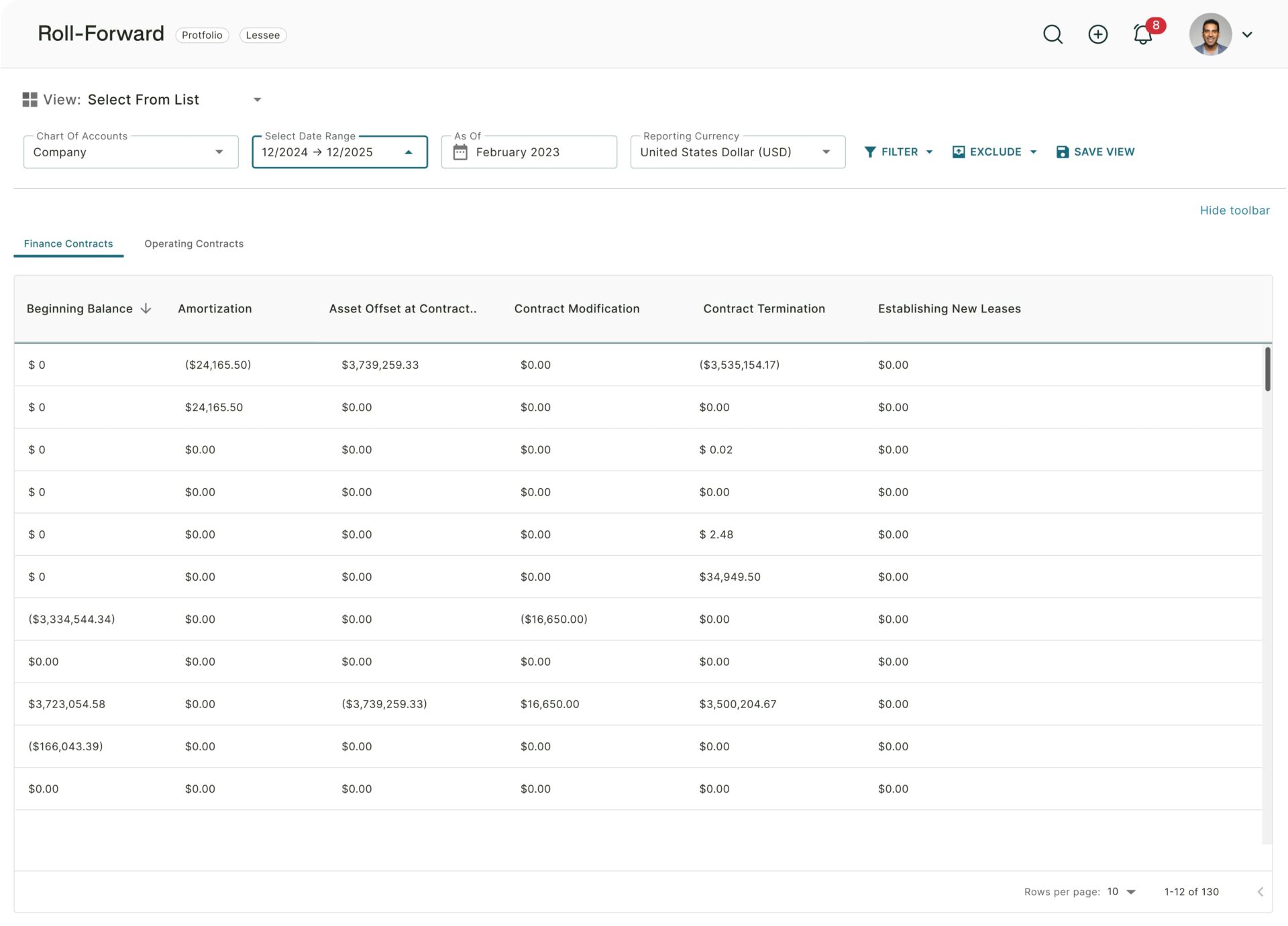Recently, the hype around AI and new accounting trends has gone into overdrive. It’s now crucial to understand which trends are worth your attention – and which are just noise. It’s a good thing that accountants and financial professionals are well-known for their skills in cutting through complexity to uncover the facts.
We put together a list of top accounting trends to help you see under the hood of the business technology innovation machine. Our guide breaks down what’s real, what’s next, and how to get ahead.
AI, automation, and generative AI are ever-present in accounting solutions
The narrative. Accountants are highly-paid professionals who do a lot of manual work, so they will inevitably be replaced by AI agents who don’t need coffee breaks.
The reality. AI isn’t replacing accountants. It’s helping them. When used effectively, AI has the potential to help accountants work more efficiently, streamlining repetitive tasks and freeing up time for more strategic work.
Proof in the data. According to Gartner, 90% of finance teams will use at least one AI-powered solution by 2026.
What to know. AI is a broad technology with a range of applications for accountants.
- Predictive AI uses existing data to forecast future trends, flag anomalies, and support decision-making – common in financial planning and audit risk assessment.
- Generative AI can draft narratives, reports, or documentation by producing human-like text, and in some cases, images or code.
- AI assistants (like ChatGPT) are more than just search engines — they let you ask questions and have a conversation, giving domain-specific answers.
Some tools embed AI directly into accounting workflows, making it easier than ever to put the technology to work. Trullion, for example, offers plug-and-play AI lease accounting software that fits seamlessly into your current processes. See how Trullion’s AI compares to OpenAI.
Pro tip. Start upskilling now (if you haven’t already). AI is eating manual tasks for breakfast – reconciliation, data entry, and even basic auditing. The earlier you adapt to the tools available to you, the better equipped you are to succeed in the future.
What experts are saying:
“If your identity is knowledge work charged by the hour, agentic AI is going to hit like a train. Accountants, lawyers, and freelancers, how are you planning ahead?” – Allie K. Miller, Fortune 500 AI Advisor and Angel Investor
“The data suggests we’re right on the cusp of broad adoption of Gen AI. We’re rapidly moving from the contemplation to the experimentation phase. This technology has seen faster take-up rates than other adoption cycles, so we expect implementation to move quickly as well.” – Tom Hood, EVP of Business Engagement and Growth at AICPA
Data as currency: Big data analytics is a big deal
The narrative. Focus only on the data that matters to your business, like the number of shipments or individual product margins.
The reality. Isolated metrics don’t tell the full story. You need to consider the totality of the financial data, and only big data analytics can effectively capture the scope of all this information.
Proof in the data. 59% of data and analytics leaders say finance and accounting departments are among the most data-driven within their organizations.
What to know. Big data analytics provides accountants with a unified, real-time view of financial performance – something that was previously out of reach. This level of insight is essential for accuracy and speed, and it pairs seamlessly with AI. For example, AI models rely on rich, historical data during the learning phase to make accurate predictions.
Pro tip. Being fluent in data analytics is now table stakes. Prioritize an education agenda, and consider tools like Python, Tableau, and Power BI.
What experts are saying:
“Many accounting firm owners we speak with have the misconception that data analytics and similar technology are reserved only for larger companies… The reality is that anyone can take advantage of sophisticated data management and analysis tools thanks to new software that makes these practices more accessible.” – Tim Sines, CPA and author at The Woodard Report
Cybersecurity is everybody’s problem
The narrative. Accountants work with finances, not IT .Cybersecurity is IT’s job – or the client’s.
The reality. Accounting firms are prime targets for hackers because they possess sensitive financial data, and that responsibility is shared. Investment in cyber insurance, security standards, compliance, and employee training on cybersecurity is now standard at every firm.
Proof in the data. Cyber attacks on accounting firms have increased by 300% since 2020.
What to know. Accounting firms are custodians of their clients’ tax records, payroll information, and business transactions. Accountants serve as a frontline defense against cybercrime.
Pro tip. Get serious about implementing cybersecurity measures. Use multi-factor authentication, implement two-sided encryption, and regularly carry out audits. It only takes one security breach to ruin your client’s business and your reputation.
What experts are saying:
“Cybersecurity threats are real, they are increasingly frequent and sophisticated in their frequency, and they can also cause havoc in your firm’s operations.” – Dawn Brolin, CPA, CFE, and CEO of Powerful Accounting
Regulatory complexity is still manageable
The narrative. Regulation is more intense and complex than ever – governments are trying to put us out of business!
The reality. Regulatory complexity is the new normal, but it’s not the end of the world. Diligence will enable firms to stay ahead and thrive.
Proof in the data. 51% of firms said their biggest challenge is keeping up with regulatory change.
What to know. Financial regulators around the world are issuing guidance at unprecedented rates, with global firms juggling overlapping frameworks. But smart infrastructure can turn compliance into a competitive advantage.
Pro tip. Put in the time to familiarize yourself with relevant regulations. Subscribe to updates from regulators and stay informed with content from trusted accounting sources like Trullion. Consider investing in software that automates and routine syncs on compliance guidelines and requirements for your accounting practice.
What experts are saying:
“The good news: The infrastructure you develop for one [regulatory] framework can serve as the foundation for the others—even though there are important differences requiring customization. Remember: This is a marathon, not a sprint.” – Brian Maloney, Audit & Assurance Partner at Deloitte & Touche LLP
Blockchain is more than just crypto
The narrative. The only practical application of blockchain is in cryptocurrencies.
The reality. Blockchain is a secure, transparent ledger system, perfect for audits and verification.
Proof in the data. All Big Four accounting firms are actively involved in the blockchain space.
What to know. Blockchain – also known as distributed ledger technology (DLT) or triple-entry bookkeeping – adds a layer of tamper-proof security to transactions involving assets like currency, contracts, and personal data. It records transactions simultaneously across multiple locations, making changes nearly impossible without approval from all parties. This greatly reduces the risk of fraud and errors.
Pro tip. Learn the basics of blockchain, including its potential and limitations. You’ll be in the driver’s seat as the technology becomes more widespread.
What experts are saying:
“Blockchain will definitely disrupt. It is a threat to some accounting roles but not the accounting profession—it’s an opportunity that makes the accountant’s job more fun. The future accountant must have a flare for IT and not just numbers. The accountant must work closely with the IT department, so that they understand one another’s language.” – Ayodeji Chris Oyeniyi, FCCA & Independent Director at Belfrics
Lifelong learning is essential
The narrative. Once you master the basics of accounting, you’re set for your career.
The reality. The rules (and tools) are constantly changing. Upskilling is non-negotiable for accountants, especially in tech and advisory skills.
Proof in the data. 95% of accountants say that willingness to adopt new technology is just as crucial as traditional accounting skills.
What to know. Accounting keeps evolving, and accountants need to evolve with it. Consistent upskilling is the key to staying adaptable and resilient throughout your career.
Pro tip. Make sure you have something to show for your learning. Pursue certifications in high-growth specialties like data analytics, cybersecurity, and ESG.
What experts are saying:
“Here’s the way I see it: upskilling is how you stay ahead of the curve. It’s how you ensure your clients see you as indispensable, not replaceable, in a profession that’s evolving faster than ever.” – Roger Knecht, President at Universal Accounting
Advisory services make firms partners instead of cost centers
The narrative. With increased outsourcing and AI automation, companies no longer need high-cost firms to accomplish routine accounting jobs.
The reality. Clients still want high-value advice – and they’ll pay for it. The best accounting firms are way more than calculators. They’re strategic partners.
Proof in the data. Firms offering advisory services saw a 20% growth rate in terms of net client fees.
What to know. CAS goes beyond traditional accounting services like bookkeeping, tax preparation, and audits to deliver strategic advice, financial insights, and solutions customized to their clients’ business models.
Pro tip. Invest in client relationships. Deliver insights, not just reports.
What experts are saying:
“CAS has become an increasingly strategic component of CPA firms’ offerings… Looking forward, we see new opportunities in business forecasting, business funding, and other categories that will drive growth and provide greater value for clients.” – Erik Asgeirsson, President and CEO of CPA.com
More than ever, accountants control their own narrative
New technology trends are shifting more power and responsibility to accountants. With AI automating routine tasks, accountants who stick to order-taking may risk falling behind. But those who embrace change have an opportunity to deliver greater strategic value than ever before. That future depends on when you start adapting – and how committed you are to staying ahead in this new era of accounting.





